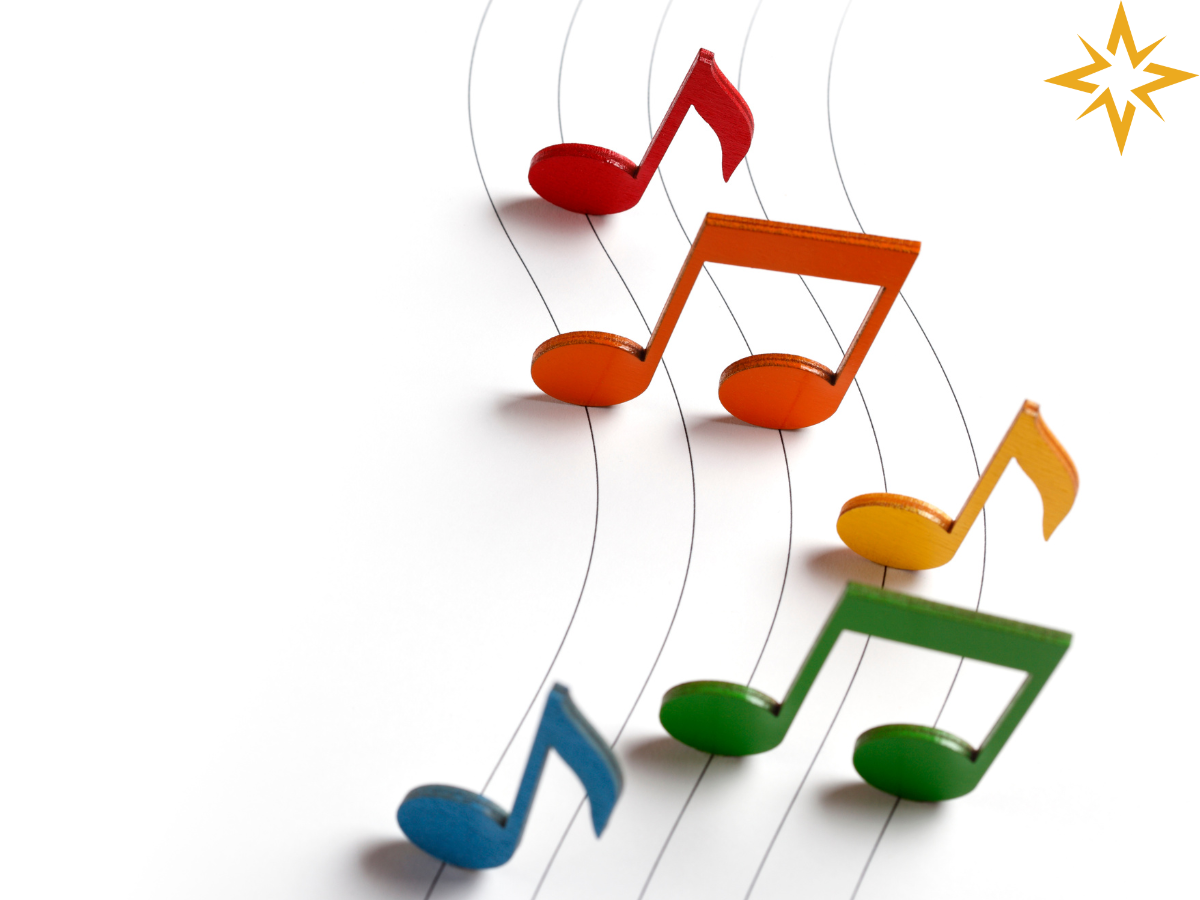The Connection that Music Gives
by Tirzah Hopkins
Colorful musical notes by heliopix from Getty Images
Created in Canva
Music is different all around the world, but it’s kind of a common language. Every culture around the world has developed music. Different cultures develop different sounds. Many NSA students were asked what music is like in their areas. Some answers are probably not what you think.
Southern culture is a more “recently” developed culture, but they have music that is important to them. According to NSA Student Jason Ward, a huge emphasis is put on gospel music. The gospel genre is a very important part of the south.
In California, NSA student Alexis Tuyo says that the music most people like there is pop and hip pop. And in Connecticut, on the other side of the country, Tayler Johnston says the preferences are much the same, the people there liking pop, hip hop, and rap.
As for other countries, where student Andrew Howard lives, in Turkey, a lot of American charts are played, as well as a lot of traditional Turkish music. And student Emma Grostkreutz, who lives in Costa Rica, says people there like a lot of pop reggaeton.
Many of the students at NSA play instruments as well. Student Luke Page plays the piano and writes his own music, mainly romance songs and ballads. When asked how he writes music, he said, “Many times the lyrics come quicker than you’d think. I’ve had a few romantic relationships in my life and at special times the words would just flow into my mind. As soon as possible I snatch paper and pen and start writing it down. The first verse and chorus are written without hesitation, though it takes some time to come up with additional verses. Once the words are written down, a unique tune enters my mind rather naturally. I then would sit down at my piano and attempt to imitate the sounds in my mind. Once I figure out all the main notes, my mind, heart, and fingers work together—this is perhaps the most magical moment during songwriting. I would play the song over and over again, working on it more if needed, until I perfected it. It’s funny, I simply can’t write a good song if I strain to do so—it has got to come naturally (usually when I least think about writing a song).”
NSA student Brooke Foster also loves to write songs. She says, “You can’t just force a pen and paper and instantly craft a song.” Sometimes she’s able to get a song out pretty quickly - two or three hours - but most of the time, it’s more like two or three weeks. Whenever she rushes a song, she ends up trashing it. She says the easiest way to write is to draw from your own experience, but it can be “intimidating” to share a song if it’s too personal. Currently, she’s into the production side of songwriting. She’s learning how to use digital programs that create virtual instruments. She usually starts out with a drum pattern and then messes with the lyrics and tune after that.
Many students, of course, prefer a style of music different from the one played in their area. For example, Micah Obermeyer really likes fun music even though a lot of people don’t like it where he’s from. NSA student Samuel Hewitt plays the drums and is learning guitar. He loves the alternative rock genre and the band “Switchfoot”. Student Jon (Eli) Robinson doesn’t play any instruments, but he loves punk rock, electronic dance music, lo-fi music, synthwave, and rap.
Music is a universal language. You don’t have to speak another country’s language to be moved by their music, with or without lyrics. Music is one of the greatest gifts God has given us. Some would say, and I agree, that it’s the language of the soul.
Tirzah Hopkins has been at NSA for about two years. She lives in Indiana, USA with eight of her eleven siblings and mom and dad. She has recently started writing for the Navigator. She enjoys spending time with family, hiking, karate, writing, and playing with babies.

